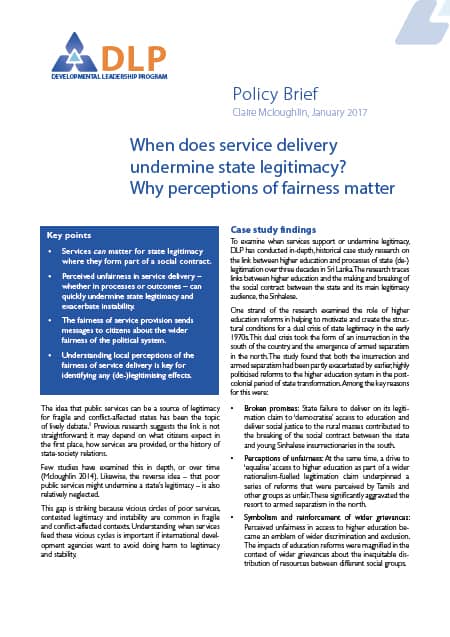The idea that public services can be a source of legitimacy for fragile and conflict-affected states has been the topic of lively debate. Previous research suggests the link is not straightforward; it may depend on what citizens expect in the first place, how services are provided, or the history of state-society relations. Few studies have examined this in depth, or over time. Likewise, the reverse idea – that poor public services might undermine a state’s legitimacy – is also relatively neglected. This gap is striking because vicious circles of poor services, contested legitimacy and instability are common in fragile and conflict-affected contexts. Understanding when services feed these vicious cycles is important if international development agencies want to avoid doing harm to legitimacy and stability.
To examine when services support or undermine legitimacy, DLP has conducted in-depth, historical case study research on the link between higher education and processes of state (de-)legitimation over three decades in Sri Lanka.
Key messages:
- Services can matter for state legitimacy where they form part of a social contract.
- Perceived unfairness in service delivery – whether in processes or outcomes can quickly undermine state legitimacy and exacerbate instability.
- The fairness of service provision sends messages to citizens about the wider fairness of the political system.
Understanding local perceptions of the fairness of service delivery is key for identifying any (de-)legitimising effects.
See details of the Sri Lanka case study findings in the research paper (PDF, 454 KB).










